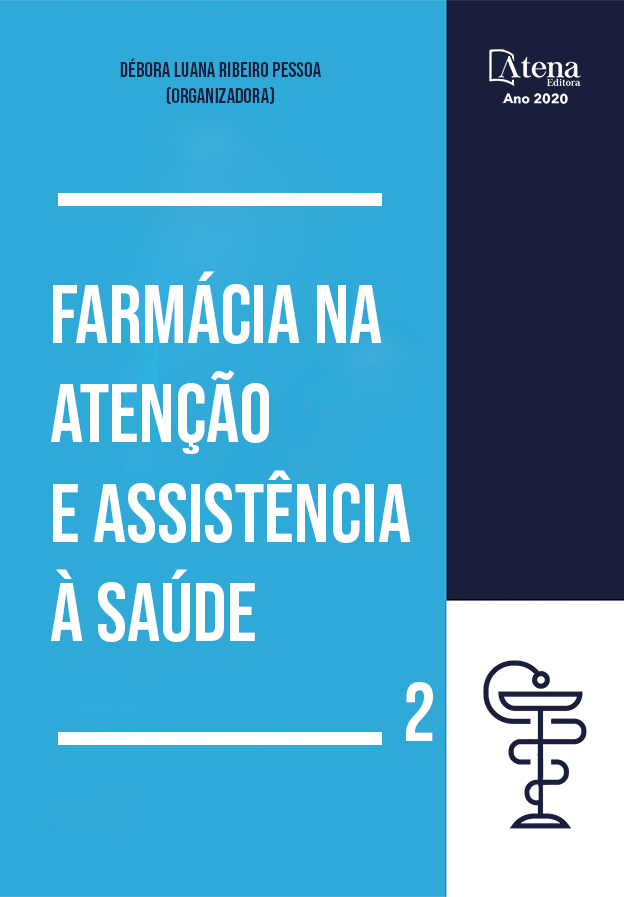
USO DE PLANTAS MEDICINAIS POR IDOSOS: RISCOS E BENEFÍCIOS
INTRODUÇÃO: O uso de plantas medicinais é um dos recursos mais conhecidos para a prevenção e tratamento de diversas patologias há muitos anos, ficando a cargo dos mais experientes propagar esses conhecimentos entre as gerações. Vivenciamos hoje, um aumento considerável na utilização dessa terapia entre a população aliado a um intenso processo de envelhecimento populacional onde os idosos tem cada vez mais buscado alternativas para realizar seus tratamentos de saúde que por vezes são caros, buscando no uso de plantas medicinais alternativas terapêuticas, porém quando não utilizada corretamente pode acarretar riscos para saúde. Esse trabalho tem o intuito de avaliar na literatura a produção científica acerca da utilização de plantas medicinais por idosos. MÉTODOS UTILIZADOS: estudo descritivo, exploratório com abordagem qualitativa do tipo revisão da literatura. Os dados foram coletados no mês de julho de 2019, através das bases de dados eletrônicas Scientific Eletronic Library Online (SCIELO) e Literatura Latino Americana e do Caribe em Ciências da Saúde (LILACS). Totalizando 36 artigos que após leitura exaustiva restaram apenas 8 para demonstrar o estudo. RESULTADOS: O uso de plantas no cuidado a saúde está ampliando cada vez mais, principalmente quando se diz respeito a doenças crônicas, que estão entre os principais agravos de saúde dos idosos. As principais plantas citadas foram: Matricaria sp., Lippia Alba, Cymbopogon citratus, Punica granatum, Pimpinella anisum, Menta sp., Plantago sp., Aroeira, Amburana Cearensis, Anacardium occidentale. Dentre os resultados obtidos foram notados que no envelhecimento normalmente ocorrem alterações fisiológicas próprias do período, que podem eventualmente causar sintomas desagradáveis ao idoso, levando assim a utilização de medicamentos para amenizar o desconforto, observou-se também que esse mesmo grupo vulnerável fez a suspensão do alopático pelo fitoterápico, com riscos de não sucesso terapêutico. E que na maioria das vezes não existe conhecimento adequado quanto preparo e conservação das plantas. CONCLUSÃO: Deve haver uma sensibilização da população quanto ao uso correto de plantas e suas derivações, principalmente entre os idosos, grupo etário que necessita de atenção especial no uso desse preparo, pois devido a sua vulnerabilidade o uso inconsciente e inadequado poderá gerar danos irreversíveis.
USO DE PLANTAS MEDICINAIS POR IDOSOS: RISCOS E BENEFÍCIOS
-
DOI: 10.22533/at.ed.7372015125
-
Palavras-chave: idosos; plantas medicinais; riscos
-
Keywords: old man; medicinal plants; scratchs
-
Abstract:
INTRODUCTION: The use of medicinal plants has been one of the most well-known resources for the prevention and treatment of various pathologies for many years, leaving it to the most experienced to spread this knowledge across generations. Today, we are experiencing a considerable increase in the use of this therapy among the population, coupled with an intense process of population aging where the elderly have increasingly sought alternatives to carry out their health treatments that are sometimes expensive, seeking the use of medicinal plants for therapeutic alternatives. however, when not used correctly it can carry health risks. This work aims to evaluate in the literature the scientific production about the use of medicinal plants by the elderly METHODS USED: descriptive, exploratory study with a qualitative approach of the literature review type. The data were collected in July 2019, through the electronic databases Scientific Electronic Library Online (SCIELO) and Latin American and Caribbean Literature in Health Sciences (LILACS). A total of 36 articles that, after exhaustive reading, only 8 remained to demonstrate the study. RESULTS: The use of plants in health care is increasing more and more, especially when it comes to chronic diseases, which are among the main health problems of the elderly. The main plants mentioned were: Matricaria sp., Lippia Alba, Cymbopogon citratus, Punica granatum, Pimpinella anisum, Menta sp., Plantago sp., Aroeira, Amburana Cearensis, Anacardium occidentale. Among the results obtained, it was noted that, in aging, physiological changes typical of the period usually occur, which can eventually cause unpleasant symptoms to the elderly, thus leading to the use of medications to ease discomfort, it was also observed that this same vulnerable group suspended the allopathic by herbal medicine, with risks of non-therapeutic success. And that most of the time there is no adequate knowledge regarding preparation and conservation of plants. CONCLUSION: There must be an awareness of the population regarding the correct use of plants and their derivations, especially among the elderly, an age group that needs special attention in the use of this preparation, because due to its vulnerability the unconscious and inappropriate use may generate irreversible damage.
-
Número de páginas: 6
- Leticia de Matos Sales
- Thays Marinho Freitas
- Tálison Taylon Diniz Ferreira
- Larissa Karla Barros de Alencar
- Luna Mayra da Silva e Silva
- Liendne Penha Abreu
- Almir José Guimarães Gouveia
- Cristielle Costa Chagas
- Thaynara Helena Ribeiro e Silva Medeiros
- JOSÉ DE RIBAMAR MEDEIROS LIMA JUNIOR


